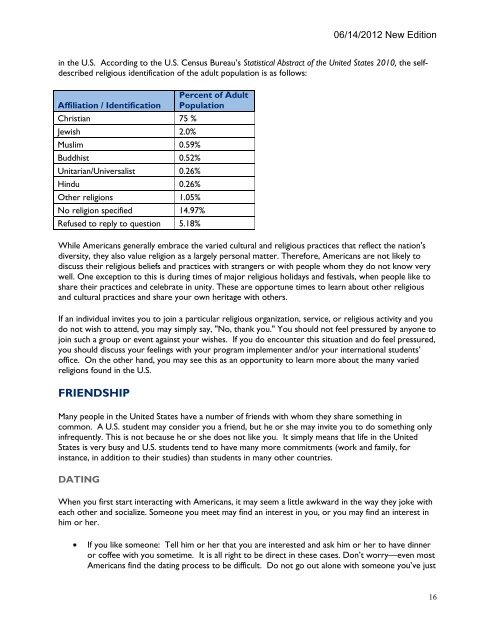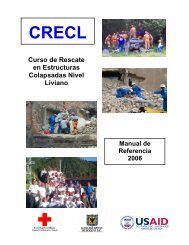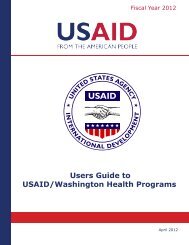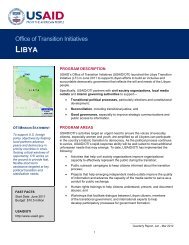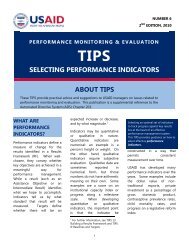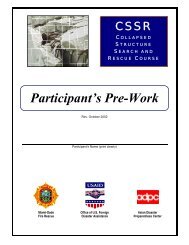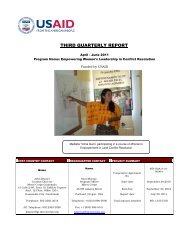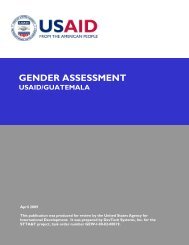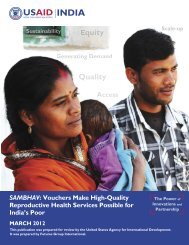Pre-Departure Orientation Manual - US Agency for International ...
Pre-Departure Orientation Manual - US Agency for International ...
Pre-Departure Orientation Manual - US Agency for International ...
You also want an ePaper? Increase the reach of your titles
YUMPU automatically turns print PDFs into web optimized ePapers that Google loves.
06/14/2012 New Edition<br />
in the U.S. According to the U.S. Census Bureau’s Statistical Abstract of the United States 2010, the selfdescribed<br />
religious identification of the adult population is as follows:<br />
Affiliation / Identification<br />
Christian 75 %<br />
Jewish 2.0%<br />
Muslim 0.59%<br />
Buddhist 0.52%<br />
Unitarian/Universalist 0.26%<br />
Hindu 0.26%<br />
Other religions 1.05%<br />
No religion specified 14.97%<br />
Refused to reply to question 5.18%<br />
Percent of Adult<br />
Population<br />
While Americans generally embrace the varied cultural and religious practices that reflect the nation's<br />
diversity, they also value religion as a largely personal matter. There<strong>for</strong>e, Americans are not likely to<br />
discuss their religious beliefs and practices with strangers or with people whom they do not know very<br />
well. One exception to this is during times of major religious holidays and festivals, when people like to<br />
share their practices and celebrate in unity. These are opportune times to learn about other religious<br />
and cultural practices and share your own heritage with others.<br />
If an individual invites you to join a particular religious organization, service, or religious activity and you<br />
do not wish to attend, you may simply say, "No, thank you." You should not feel pressured by anyone to<br />
join such a group or event against your wishes. If you do encounter this situation and do feel pressured,<br />
you should discuss your feelings with your program implementer and/or your international students’<br />
office. On the other hand, you may see this as an opportunity to learn more about the many varied<br />
religions found in the U.S.<br />
FRIENDSHIP<br />
Many people in the United States have a number of friends with whom they share something in<br />
common. A U.S. student may consider you a friend, but he or she may invite you to do something only<br />
infrequently. This is not because he or she does not like you. It simply means that life in the United<br />
States is very busy and U.S. students tend to have many more commitments (work and family, <strong>for</strong><br />
instance, in addition to their studies) than students in many other countries.<br />
DATING<br />
When you first start interacting with Americans, it may seem a little awkward in the way they joke with<br />
each other and socialize. Someone you meet may find an interest in you, or you may find an interest in<br />
him or her.<br />
If you like someone: Tell him or her that you are interested and ask him or her to have dinner<br />
or coffee with you sometime. It is all right to be direct in these cases. Don’t worry—even most<br />
Americans find the dating process to be difficult. Do not go out alone with someone you’ve just<br />
16


